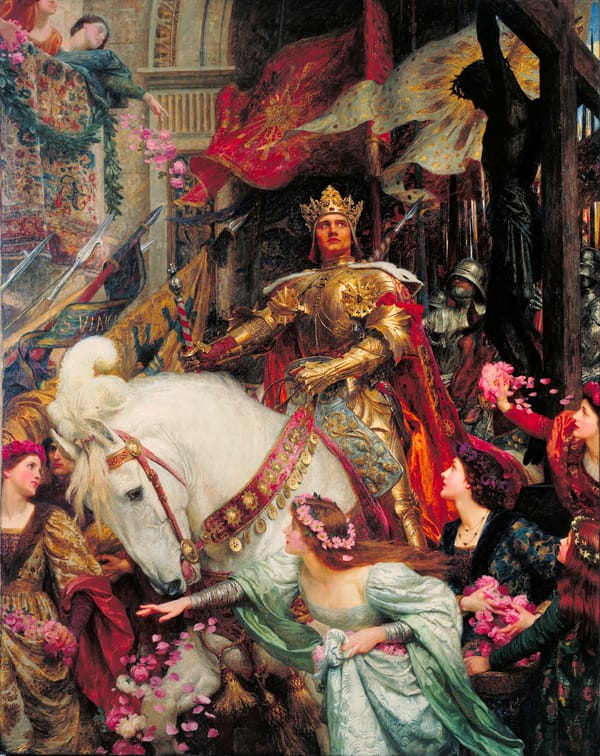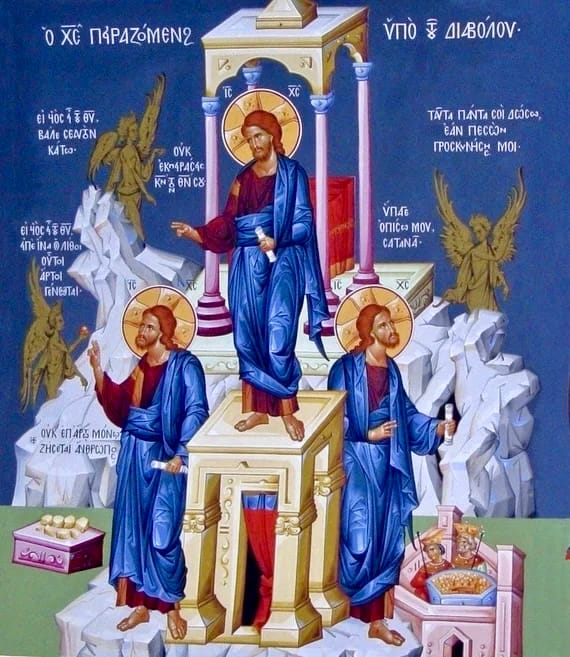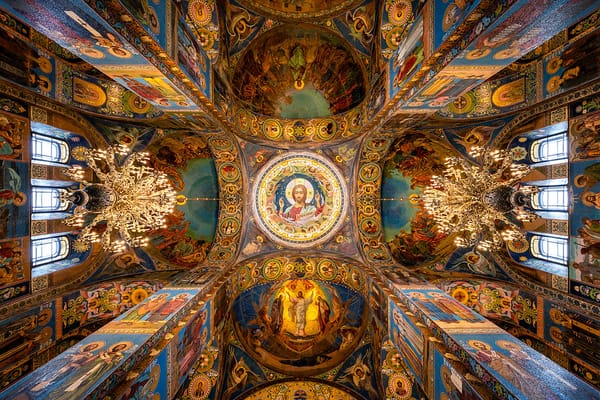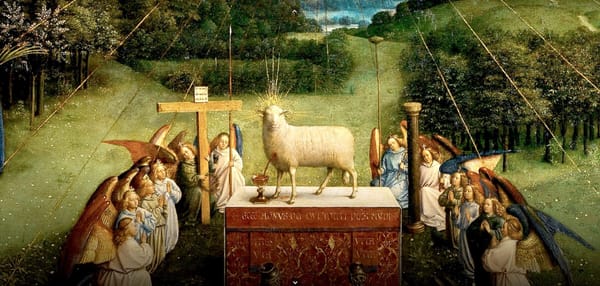Precisely the Thing that Led to the Secularization of Culture
On his Leaves in the Wind newsletter, David Bentley Hart recently posted a video chat with the essayist Ed Simon, in part because Hart so admired Simon’s book Binding the Ghost: Theology, Mystery, and the Transcendence of Literature the last chapter which (“Binding the Ghost: On the Physicality of Literature”) almost cause Hart not to write his own recent essay “How to Write English Prose” because Simon had already accomplished so much of what Hart had hoped to achieve. There entire conversation is delightful, but I’ve put together an edited transcription of just a brief excursus at the start because I have a feeling that I’ll want to refer back to it later and quote from it. They got talking about the ways in which American Christianity, in particular, is wildly unaware of it’s own rootlessness even when it fancies itself to be at its most profoundly traditional.
Simon: I had this idea for an essay. I don’t know if I really have the expertise to do it per se, but the ways in which so much of normative Christian belief in the United States, in particular, has some sort of variation of an ancient heresy, but people take it as being doctrinaire or what have you. So I feel like we have a lot of donatists in the United States. Sometimes I feel like we have very few genuine trinitarians in the United States.
Hart: Well, there are a lot of tritheists.
Simon: Yes, exactly. And they don’t even know that they’re tritheists, though, I think, is what’s so interesting. It speaks to the general, maybe, poor catechization of folks, or something. But there’s a lot of fervently held beliefs, but the definition of those beliefs is sometimes a little bit ambiguous I think.
Hart: Well, I’ll tell you this. I used to think, I used to assume, that the ones who knew the least about the tradition and who would be the most belligerent in defending their little sectarian corner of the tradition would be certain kinds of hardcore Calvinists or persons who were various parts of the free church group and who just weren’t aware of the tradition at all. Actually, in my experience, in recent years, it’s always been the Thomists because they’re the ones—I mean, those who hold to the school, the 16th century school—because they’ve got a system that they have equated with the faith and the Catholic faith, they are profoundly—I mean as a class, as a race, as a people—profoundly ignorant of the tradition at large.
Simon: Yeah, I agree with you. …I have to confess that I’ve only really encountered people who would describe themselves as Calvinist—as like TULIP Calvinists—very rarely in my life, but from the sort of online discourse that I’ve encountered, I agree with you. …There’s that sense in which Christianity somehow seems to begin in 16th century Geneva instead of first century Judea.
Hart: By the same token, the Thomist, I mean those of the Second Scholasticism, which is currently in revival, especially in America, for them it starts in the 16th century too. They’re clinging, …their idea of the ancient tradition of the church is Baroque Catholicism, and specifically, an understanding of grace and nature which, simply, is anachronistic when trying to read the fathers or the scripture or whatever. They’re the most censorious. I have been attacked for saying things about the exegesis of the Old Testament that are just like straightforward quotations from Gregory of Nyssa, Maximus, Augustine but even of a certain famous Catholic thinker of the 20th century, Joseph Ratzinger. But they don’t fit the Thomist paradigm—I get attacked for it. I wrote a book called You Are Gods, which really is meant to be provocative in many ways, but, at the end of the day, just comes down to Maximus the Confessor, the Pseudo Dionysus, things like that—again attack because it’s outside the domestic mainstream. They’re just literally unaware of the rest of the tradition. And it does, in a sense, balance out my view of things. For years, I used to abominate, I used to fulminate against the New Atheists for not ever knowing what they were talking about, for always creating in their minds what they assumed people who believed in God were talking about. I realize now that they’re hardly unique. Not only are they not unique in this regard, they’re not even particularly adventurous in their bigotries.
Simon: I was curious, do you find that a lot of the sort of Thomist stuff comes from the so-called kind of Trad Caths?
Hart: Yeah, that’s the tradition they love is the 16th century tradition with this god-awful metaphysically confused theology that itself was a historical accident trying to get around certain presumed condemnations of ancillary issues. And with it comes a kind of infatuation with the politics of that period, the notion of the absolutist state and of a sort of throne and altar accommodation.
Simon: I’m fascinated by the Trad Caths as a category of people—as somebody who’s kind of a very nominal cradle Catholic, but culturally, I think, very Catholic—I’m always fascinated by the kind of adoption of this Tridentine Catholic identity that merges with this terrible Republican politics and the subculture that has emerged out of it that’s very online and very modern, of course, even if it pretends not to be. It can’t help but be a beast of modernity.
Hart: Well, it’s quintessentially modern. It is the modern form. In fact, it is modernity recapitulated from its most catastrophic moment—precisely the thing that led to the secularization of culture and the collapse of what they understand to be Christendom.
Simon: Absolutely, I completely agree. It’s the sort of, you know, folks can’t help but be the monster that they want to defeat.





